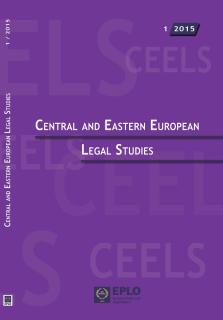
NEW OPPORTUNITIES AND CHALLENGES
FOR PARTICIPATION IN CRISIS AND DISASTER RELIEF
THE QUOIMA PROJECT AS EXAMPLE FOR INTERACTION, PARTICIPATION
AND PRIVACY PROTECTION IN DISASTER MANAGEMENT
KARIN RAINER / INES LEVY / JULIA SCHMID / KATHARINA GÖTSCH /
AEI (Agency for European Integration and Economic Development): karin.rainer@aei.at; ines.levy@aei.at; katharina.goetsch@univie.ac.at
GERALD QUIRCHMAYR
University of Vienna, Research Group Multimedia Information Systems, Vienna, Austria
JOHANNES GÖLLNER
National Defense Academy, Dept. of Central Documentation, Austrian MoD, Vienna, Austria, johannes.goellner@bmlvs.gv.at
NINA FORST
University of Vienna, Austria, nina.forst@univie.ac.at
GERHARD BACKFRIED
SAIL LABS Technology GmbH, Vienna, Austria, gerhard.backfried@sail-labs.com
Crises and disasters occur all over the world with the highest impact on the most vulnerable in society. Generating a thorough and trusted status of information about the situation is a priority for effective and coordinated disaster management and relief measures delivered by governmental organizations (GOs) and non-governmental organizations (NGOs) in the surroundings of a critical event. Information gathering, processing, visualization and (internal as well as external) dissemination for decision support and mitigation is performed via a number of different channels and media, among them various social media channels. The QuOIMA-project, funded by the Austrian Security Research Program KIRAS by the Austrian Ministry of Transport, Innovation and Technology, focuses on the various possibilities to use publicly available, open source data generated in the sphere of traditional (online distributed) and social media. These data can be used on the one hand as a vital input for situation awareness and deci¬sion support of disaster management; on the other hand, they can be used to initiate and maintain active, bidirectional, participatory involvement of community members in case of a serious event - under the prerequisite of a trusted, reliable, and privacy safeguarding framework. Subsequently, relevant core issues of privacy rights and the Privacy Impact Assessment applied in the course of the project QuOIMA are discussed. But even before crises occur, precautions can be taken by monitoring social media sources such as Facebook, Twitter or specific blogs. Risk indicators can be identified more quickly, structures and work plans for disaster management can be set up. One of those means that are outlined in this context is the new and emerging crowd tasking approach, a promising and high potential area for the involvement of community members.



















